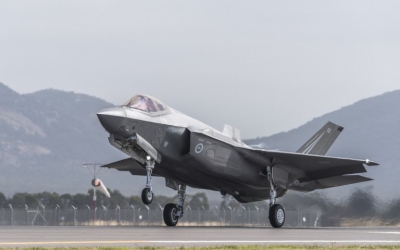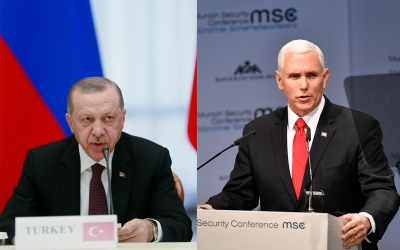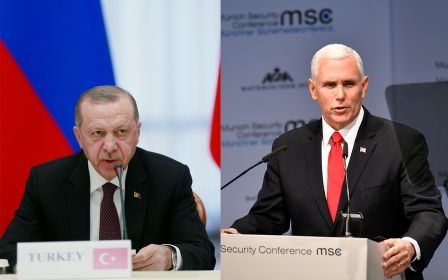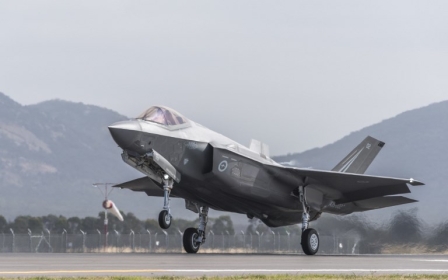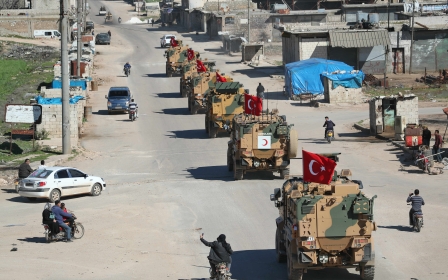Turkey's Erdogan stands by Russia missile deal in spite of US warnings
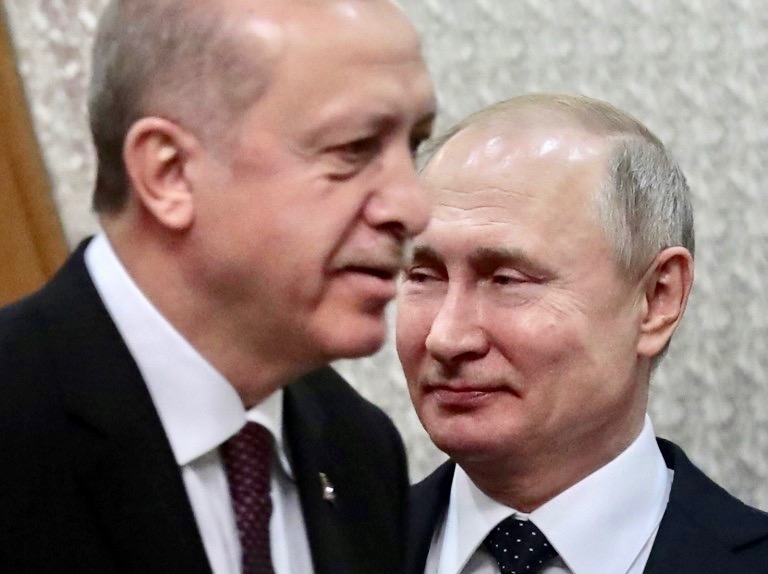
Turkey's deal to buy Russian S-400 missile defence systems has "nothing to do" with the security of the US, President Recep Tayyip Erdogan said on Saturday following a Pentagon warning.
He was speaking a day after Washington warned Ankara of "grave consequences" should the deal go ahead, AFP reported.
"It is very clear why Turkey has bought this air defence system, under what conditions it has bought them and how it will be used," Erdogan said in the southeastern city of Diyarbakir.
"Everyone knows that this issue has nothing to do whatsoever with NATO, the F-35 project and the security of the US," he said during the televised speech. The "issue is not about the S-400s" but about Turkey "taking actions on its own accord", especially in Syria, he added.
New MEE newsletter: Jerusalem Dispatch
Sign up to get the latest insights and analysis on Israel-Palestine, alongside Turkey Unpacked and other MEE newsletters
If it goes ahead with the Russian deal, Turkey risks losing delivery of Lockheed Martin F-35 stealth fighter jets and could face sanctions under a US law known as Countering America's Adversaries Through Sanctions Act, Reuters reported.
In one of the strongest comments on the topic yet, the Pentagon warned on Friday of "grave consequences" in the military relationship between the US and Turkey if Ankara takes the S-400. "They would not have access to Patriot and the F-35," acting Pentagon spokesman Charlie Summers said.
Still, "they have not once said they could change their mind," said Ozgur Unluhisarcikli of the German Marshall Fund in Ankara.
Turkey does not want to jeopardise efforts to find common ground with Russia on Syria, and has little time remaining for second thoughts as the S-400s' delivery date approaches, he said.
That means the chance of US sanctions is increasing, defence analyst Can Kasapoglu told Reuters, adding that any "diplomatic room for manoeuvre is narrow”.
Ankara's push to buy the systems from Moscow has increased tensions with its NATO ally as Washington has raised questions over the equipment's compatibility with the alliance's established weapon systems.
The US also says the S-400 sale is part of Russian efforts to disrupt the alliance amid Western concern over Erdogan's burgeoning relationship with Russian President Vladimir Putin.
Erdogan and Putin have been working closely to secure a political solution to the Syrian war under the Astana process with Iran.
In February, US Vice President Mike Pence made a telephone appeal to Erdogan, asking him to renege on a missile deal with Russia in favour of an American one, Middle East Eye learned at the time.
Pence, a former member of US-Turkey Caucus at the US Congress, relayed President Donald Trump’s greetings to Erdogan and asked to drop the S-400 sale, according to two Turkish sources with knowledge of the call.
Pence stressed that an alternative deal with Washington, which would see Turkey purchase Patriot missiles instead of the S-400, was still on the table, according to the sources.
Erdogan told him that Ankara’s deal with Moscow had passed a point of no return and Patriots didn't meet with all three criteria Turkey needed: timely delivery, joint-production and tech transfer.
Ties between Washington and Ankara have been strained over multiple issues, including US failure to extradite Pennsylvania-based Muslim preacher Fethullah Gulen.
Turkey accuses Gulen of ordering the 2016 failed coup, which he denies.
Relations have also been strained over US support for a Kurdish militia in Syria, which Ankara views as a "terrorist offshoot" of Kurdish rebels inside Turkey.
Washington delivered the first F-35s to Turkey in June last year, but the planes remain in the US while their Turkish pilots undergo training, a process which the Pentagon says may take two years.
Retired Turkish diplomat Uluc Ozulker said Turkey now finds itself backed into a corner.
"The United States on the one hand, Russia on the other... We are stuck between the two," he said. "Turkey cannot exit this crisis."
Middle East Eye delivers independent and unrivalled coverage and analysis of the Middle East, North Africa and beyond. To learn more about republishing this content and the associated fees, please fill out this form. More about MEE can be found here.


